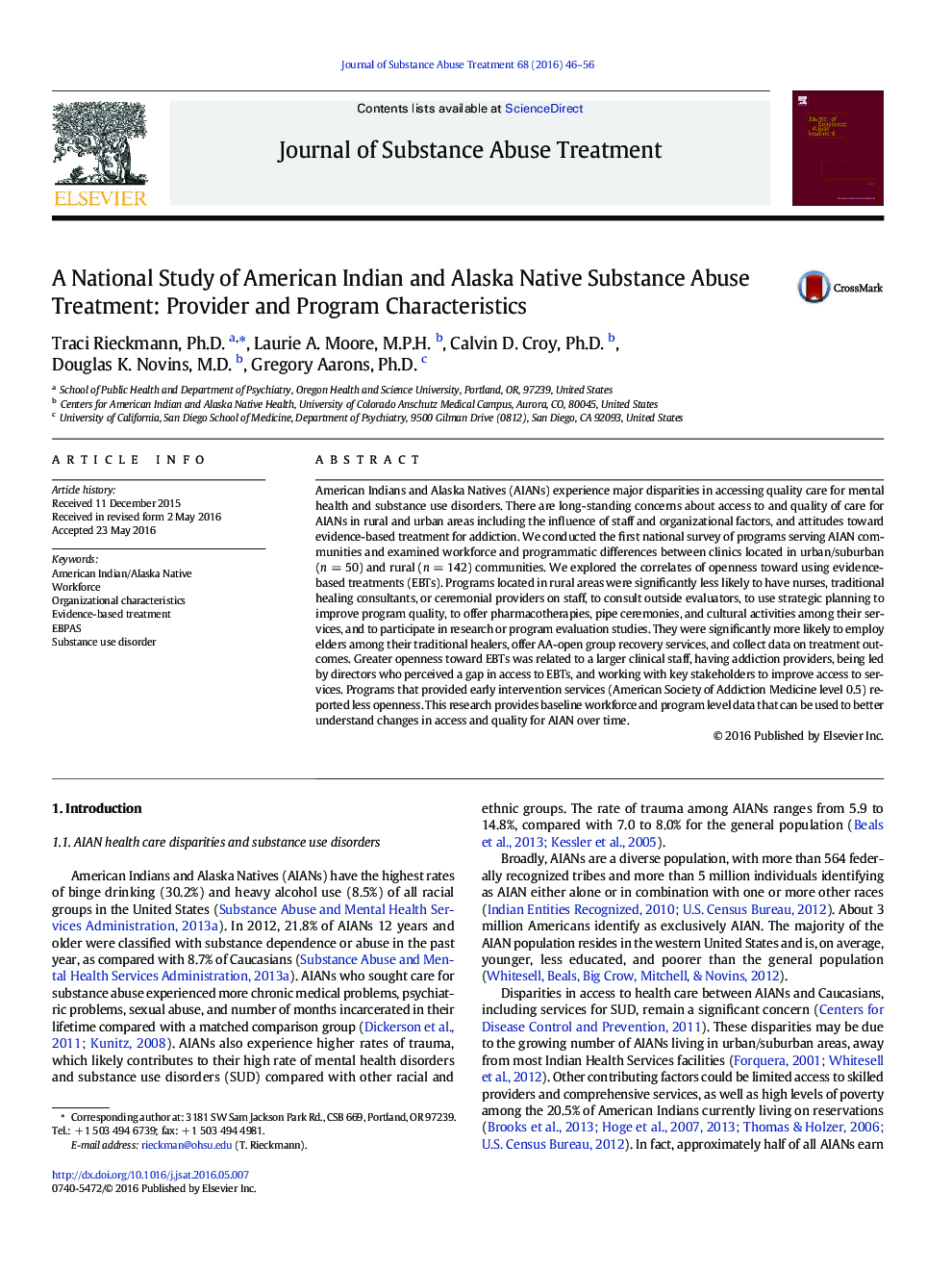| Article ID | Journal | Published Year | Pages | File Type |
|---|---|---|---|---|
| 6802166 | Journal of Substance Abuse Treatment | 2016 | 11 Pages |
Abstract
American Indians and Alaska Natives (AIANs) experience major disparities in accessing quality care for mental health and substance use disorders. There are long-standing concerns about access to and quality of care for AIANs in rural and urban areas including the influence of staff and organizational factors, and attitudes toward evidence-based treatment for addiction. We conducted the first national survey of programs serving AIAN communities and examined workforce and programmatic differences between clinics located in urban/suburban (n = 50) and rural (n = 142) communities. We explored the correlates of openness toward using evidence-based treatments (EBTs). Programs located in rural areas were significantly less likely to have nurses, traditional healing consultants, or ceremonial providers on staff, to consult outside evaluators, to use strategic planning to improve program quality, to offer pharmacotherapies, pipe ceremonies, and cultural activities among their services, and to participate in research or program evaluation studies. They were significantly more likely to employ elders among their traditional healers, offer AA-open group recovery services, and collect data on treatment outcomes. Greater openness toward EBTs was related to a larger clinical staff, having addiction providers, being led by directors who perceived a gap in access to EBTs, and working with key stakeholders to improve access to services. Programs that provided early intervention services (American Society of Addiction Medicine level 0.5) reported less openness. This research provides baseline workforce and program level data that can be used to better understand changes in access and quality for AIAN over time.
Keywords
Related Topics
Life Sciences
Neuroscience
Biological Psychiatry
Authors
Traci Ph.D., Laurie A. M.P.H., Calvin D. Ph.D., Douglas K. M.D., Gregory Ph.D.,
